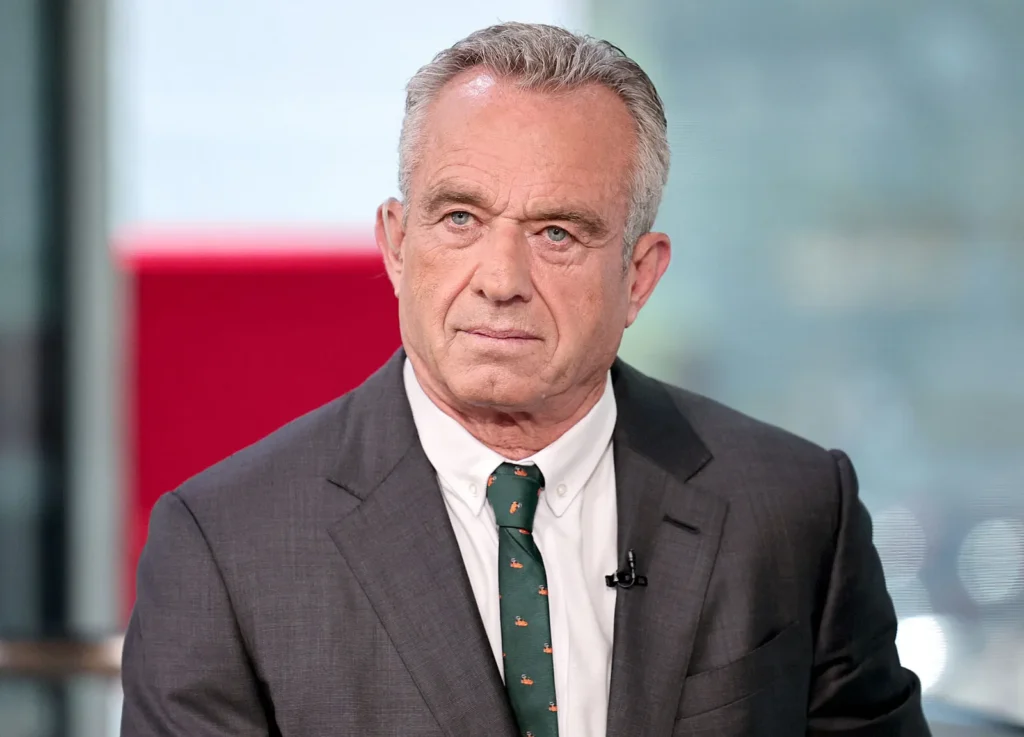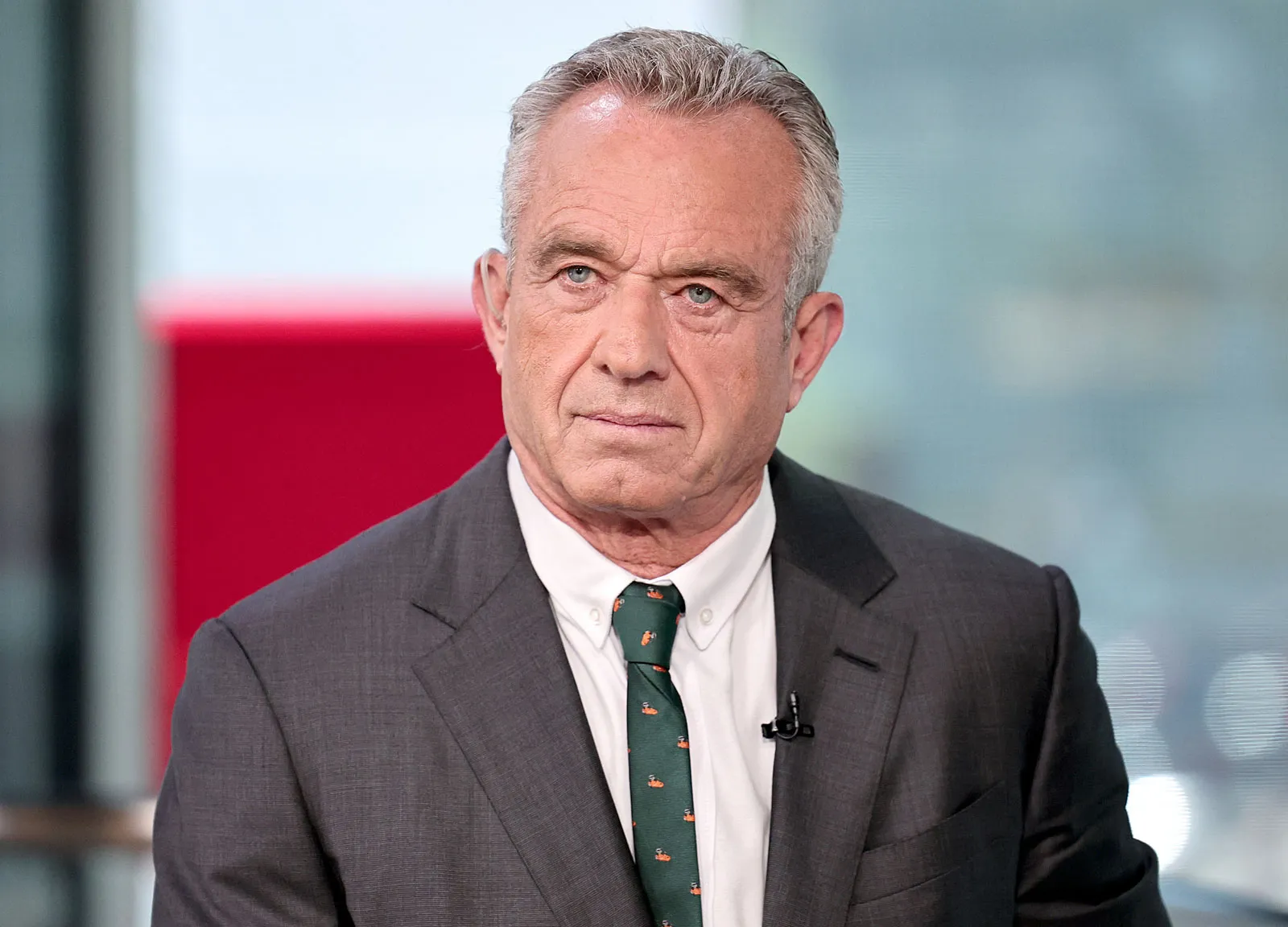“Robert F. Kennedy Jr., RFK Jr. health, brain parasite, mercury poisoning, environmental advocate, presidential campaign, neurocysticercosis, public health, political leadership, resilience”
“Explore the compelling story of Robert F. Kennedy Jr.’s health challenges, including a brain parasite and mercury poisoning, and his remarkable recovery. Discover how these experiences have shaped his advocacy and presidential campaign, highlighting his resilience and dedication to public service.”

In the world of politics and environmental advocacy, few figures have faced as many personal challenges as Robert F. Kennedy Jr., whose health struggles over the past decade have sparked both concern and admiration. Recent revelations about his medical condition underscore the vulnerabilities and the indomitable spirit of this prominent figure.
Robert F. Kennedy Jr., at 70, has endured a series of significant health setbacks, including severe memory loss and mental fog starting around 2010. His symptoms led to a shocking diagnosis: a parasitic worm had invaded his brain, causing significant damage before it eventually died. This revelation came to light during a deposition for his 2012 divorce, revealing the depths of his health struggles which, at the time, also impacted his professional capabilities and earning potential.
Kennedy’s health issues didn’t stop at the brain parasite. Around the same period, he also suffered from mercury poisoning, a serious condition that can result from consuming large amounts of certain types of fish. Symptoms of mercury poisoning are severe and can include loss of peripheral vision, muscle weakness, and problems with movement, hearing, and speech, in addition to memory loss. Kennedy attributes this condition to his diet, which included high quantities of tuna and perch.
Despite these daunting challenges, Kennedy’s journey is one of resilience and recovery. He has reportedly overcome the immediate impacts of the brain parasite and mercury poisoning, regaining his mental clarity and physical health. This recovery is attributed to significant lifestyle changes, including improved sleep habits, reduced travel, decreased consumption of fish, and undergoing chelation therapy to remove heavy metals from his body.
Kennedy’s long-term battle with atrial fibrillation, an irregular heartbeat, further highlights his medical struggles. However, he maintains that it has been over a decade since he last experienced symptoms, suggesting a stable condition.
Amidst these personal health challenges, Kennedy has continued his work as an environmental advocate, traveling extensively across continents. His campaign spokesperson, Stefanie Spear, emphasized his robust health, noting his extensive travel in regions like Africa, South America, and Asia where he likely contracted the parasite.
The timing of these revelations is critical as Kennedy positions himself as a vibrant and youthful candidate in the political arena, contrasting with elder statesmen such as President Joe Biden and former President Donald Trump. On the campaign trail, he has demonstrated his vitality through activities like skiing and weightlifting.
Kennedy’s medical saga also opens a window into broader issues of public health. Dr. Peter Hotez, an infectious disease expert, notes that conditions like Kennedy’s are complex and often misunderstood. Pork tapeworm infections in the brain, for instance, can be elusive to diagnose and have long-lasting effects, such as seizures and the formation of calcified cysts that trigger inflammatory responses.
Kennedy’s case is also a poignant reminder of the intersections between personal health and public service. His health disclosures come at a time when the physical and cognitive capabilities of political leaders are increasingly scrutinized. While his rivals have released statements on their health, Kennedy’s past and present conditions form a narrative of overcoming adversity, underscoring his resilience and determination.
Furthermore, Kennedy’s outspoken views on health policies, particularly his skepticism toward certain vaccines, have stirred controversy. As the founder of the Children’s Health Defense, his stance on vaccines has been at the center of public debate, shaping his public persona as a challenger of mainstream medical opinions.
In conclusion, Robert F. Kennedy Jr.’s health journey is a testament to personal resilience and the human capacity to overcome adversity. His story is not just about medical challenges but also about a relentless pursuit of vitality and service despite those challenges. As he continues his advocacy and political endeavors, his health narrative offers both inspiration and a crucial perspective on the broader dialogue about leadership, public health, and personal well-being in the face of life’s unpredictabilities.
Read More-
